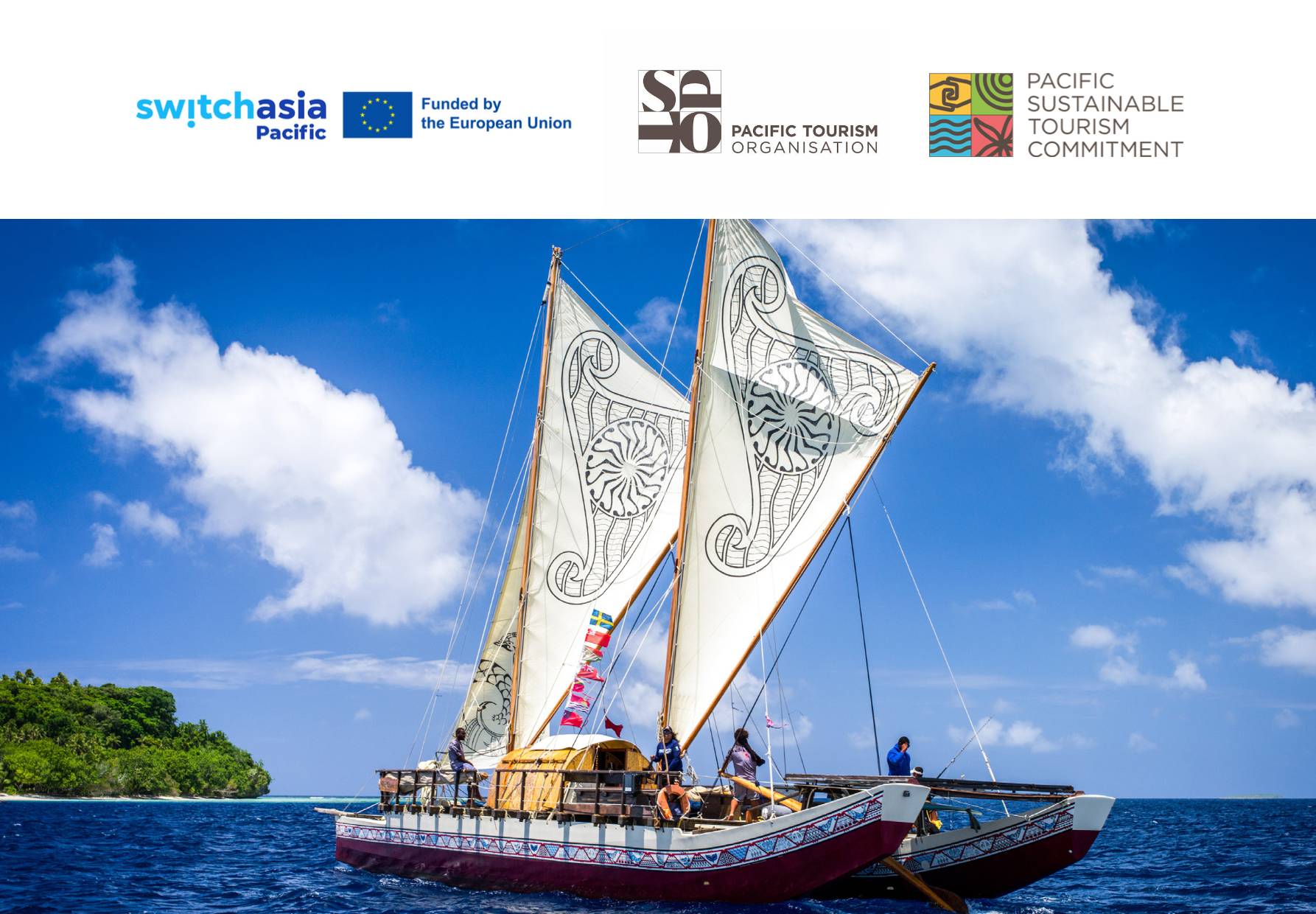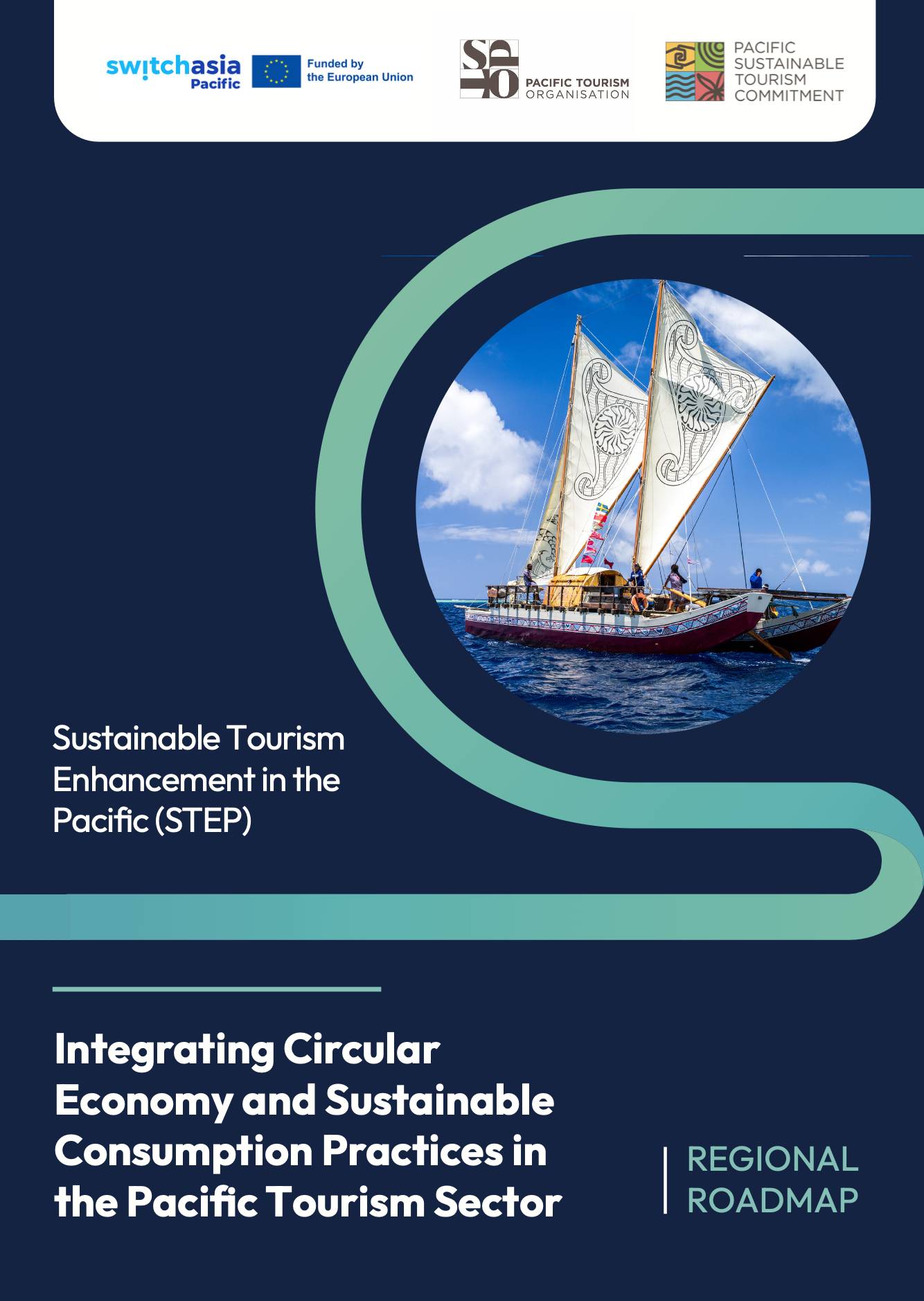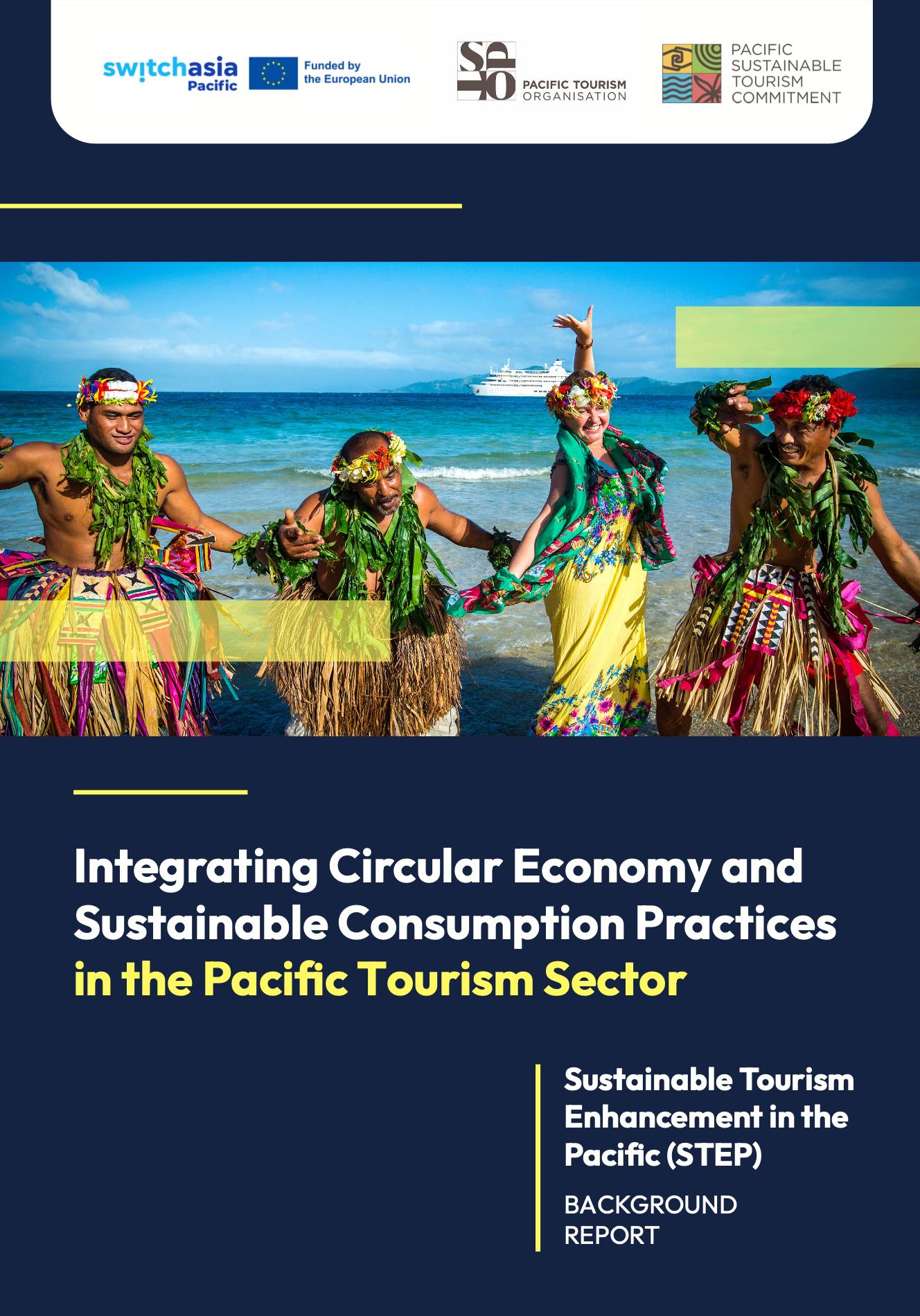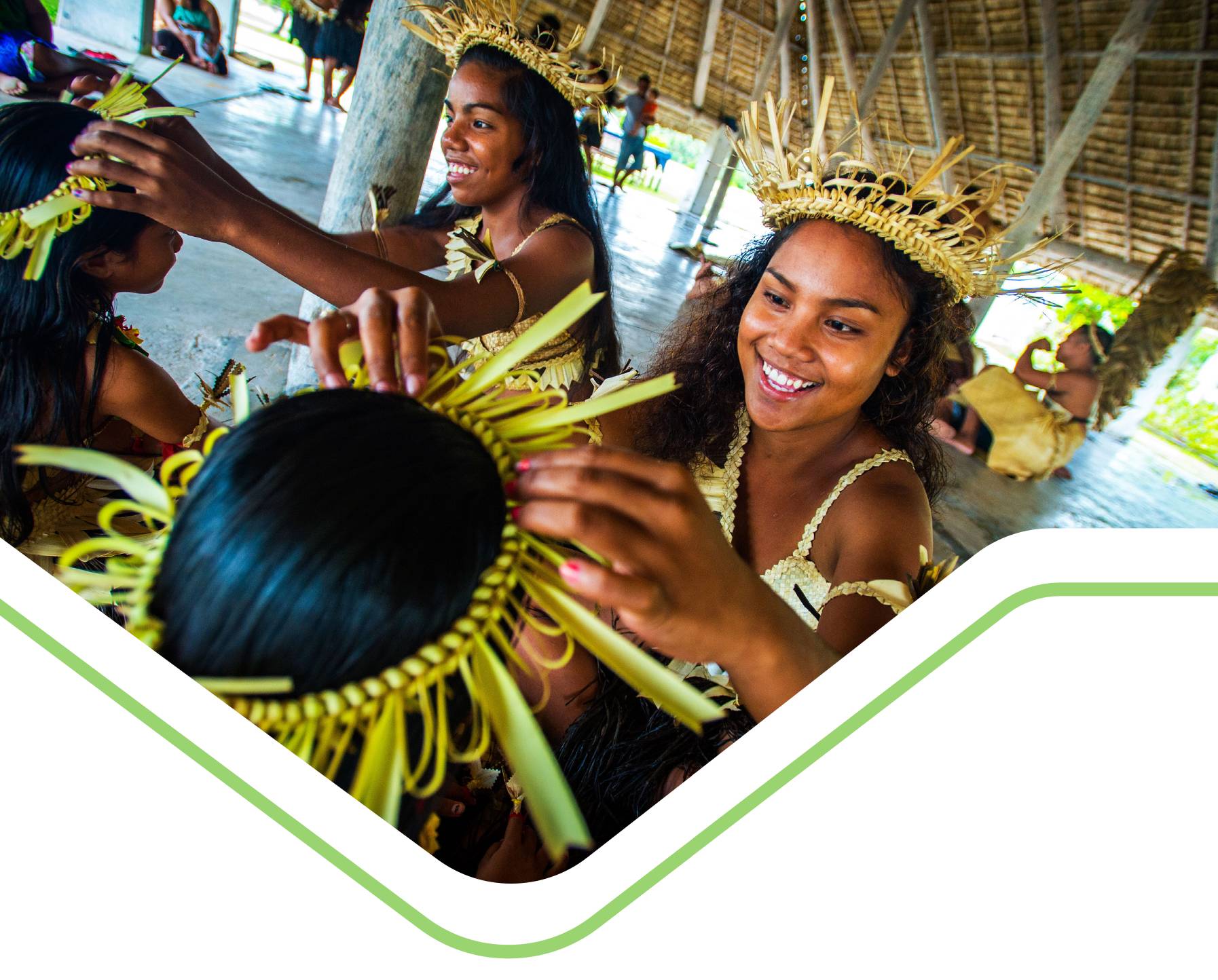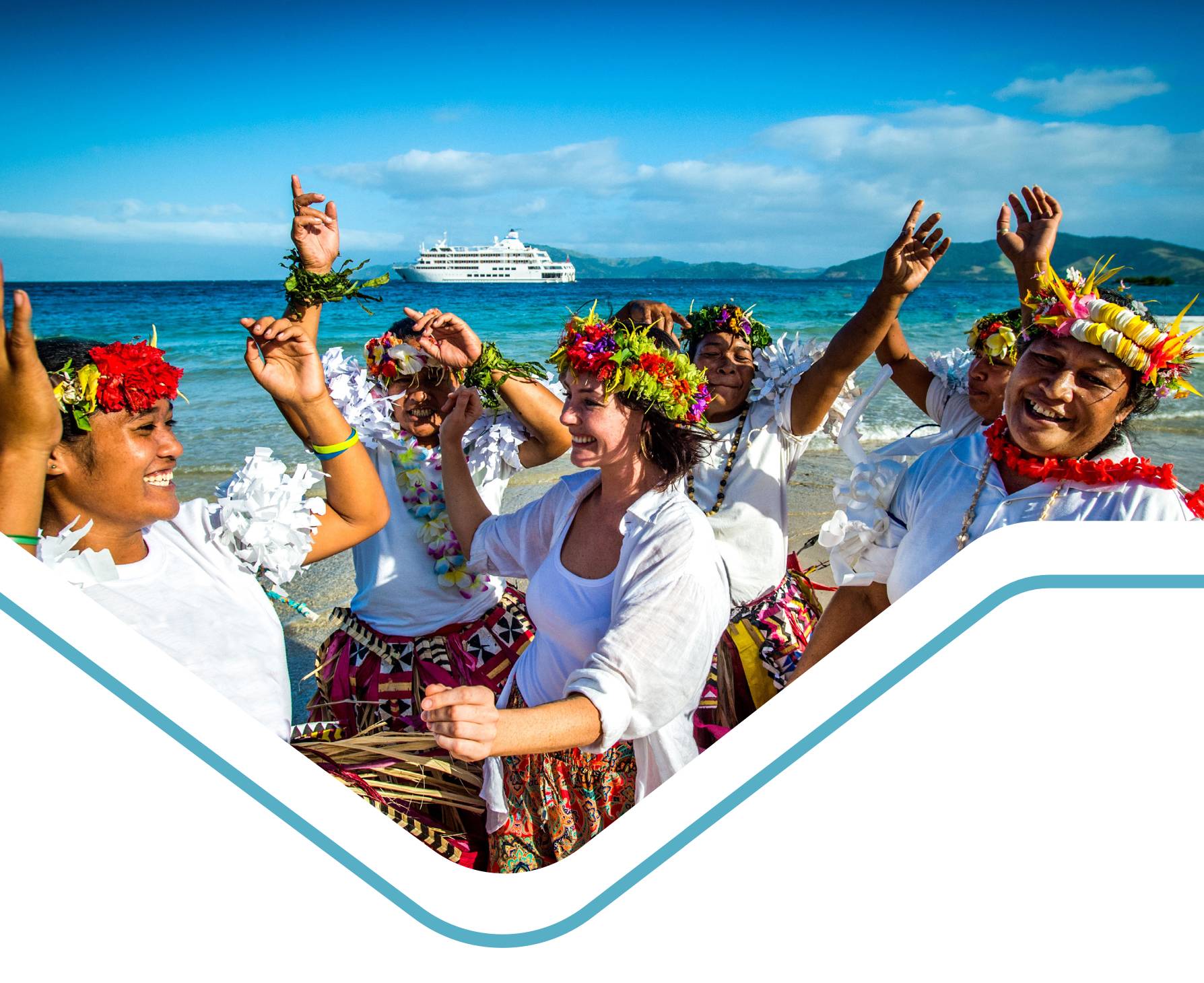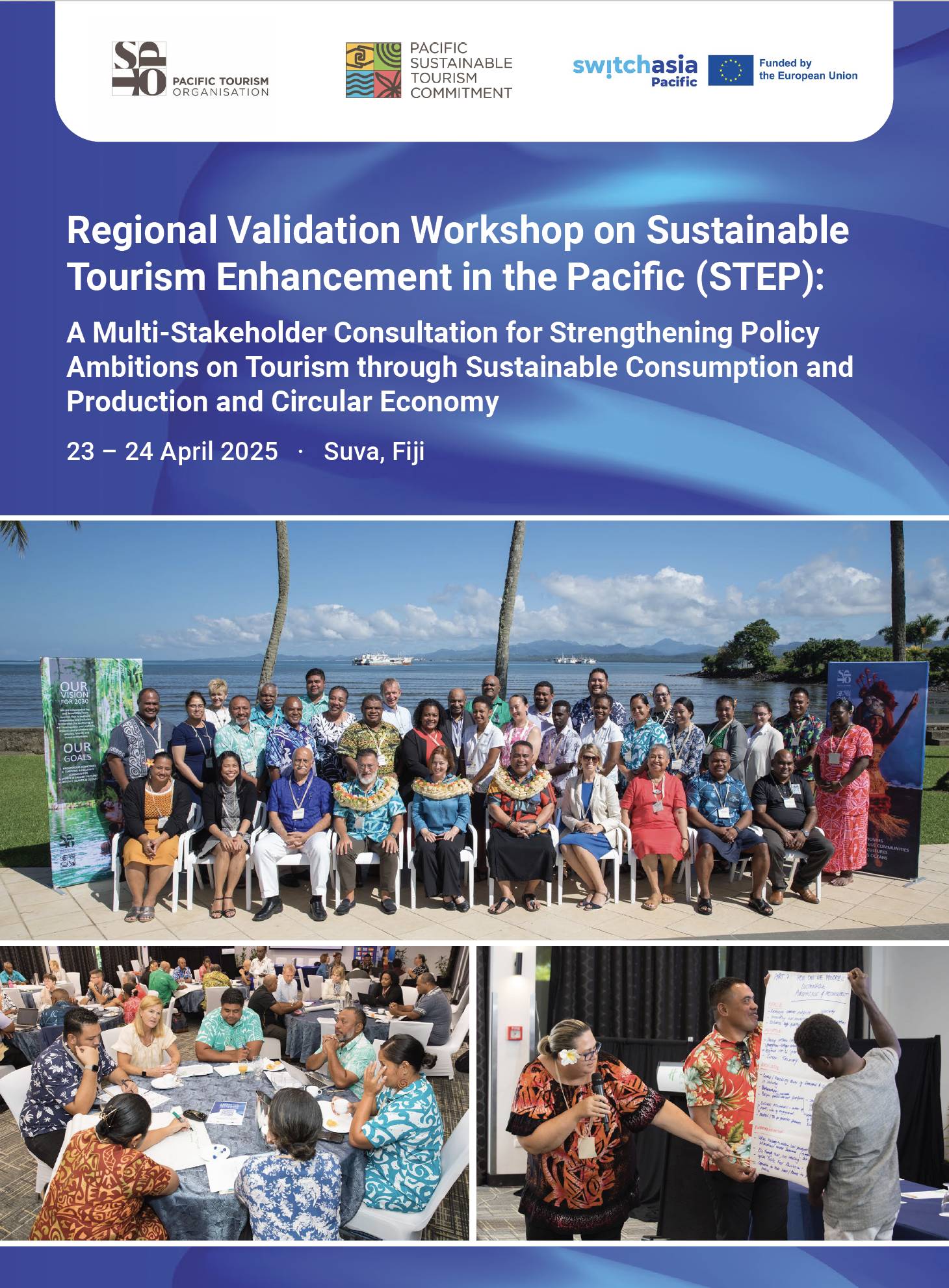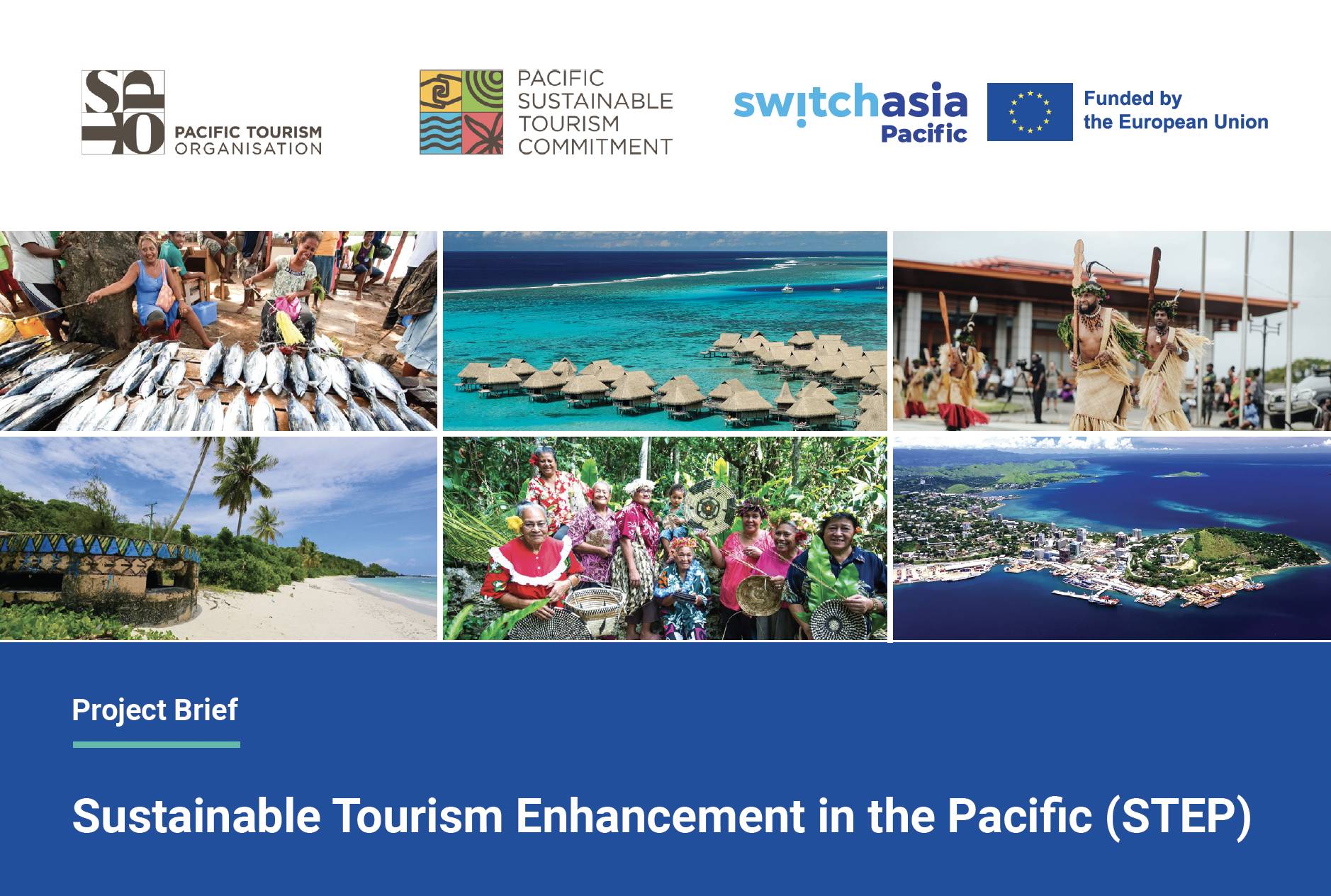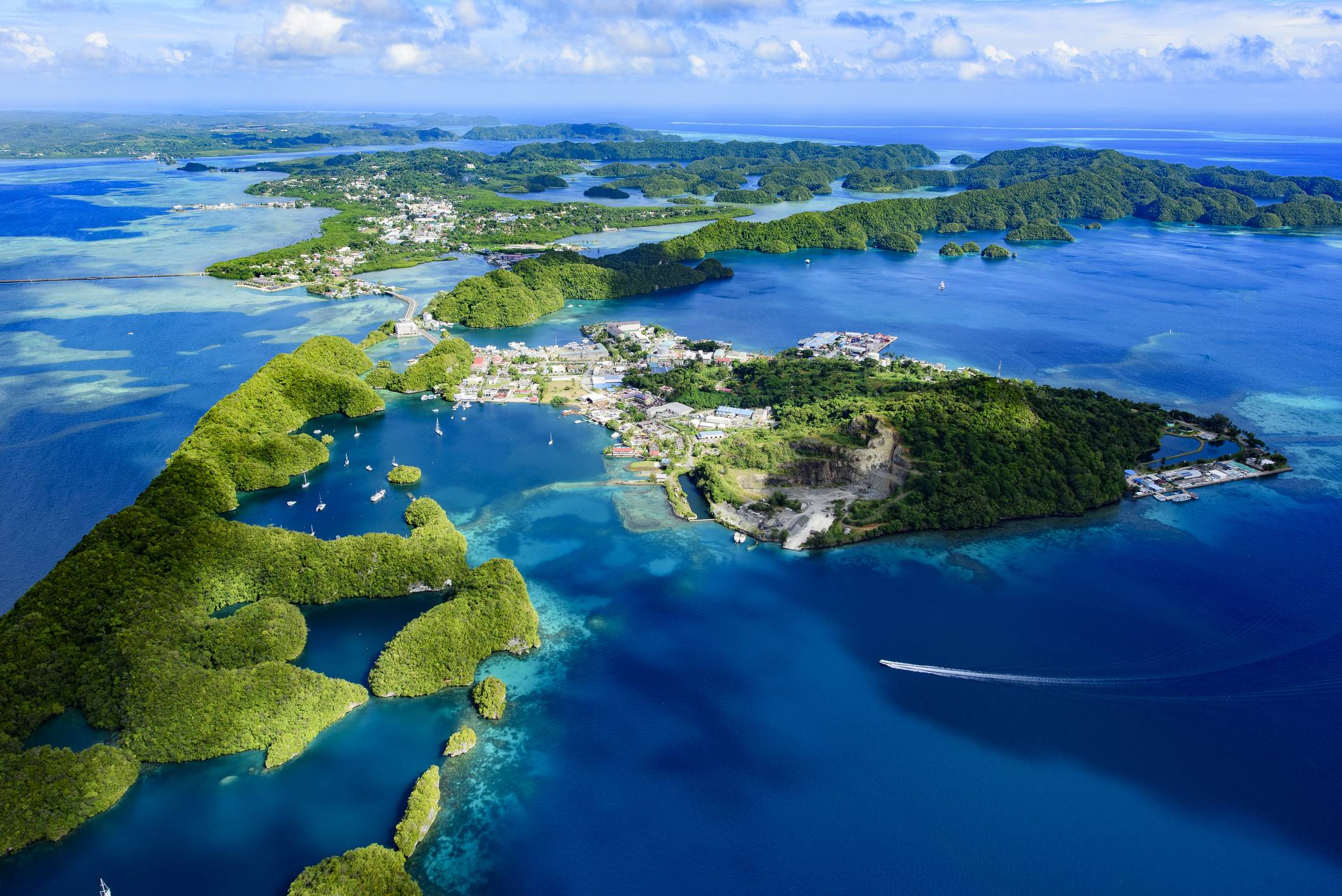
Locations: Pacific region (Ongoing)
Themes: Sustainable Tourism
The Challenge
The Pacific Tourism Organisation (SPTO) supports 20 member countries in promoting sustainable tourism through marketing, research, and sustainable development initiatives. In 2021, the Pacific Sustainable Tourism Policy Framework (PSTPF) was endorsed by the Pacific Council of Tourism Ministers to guide the sector towards greater sustainability. Aligned with the 2030 Sustainable Development Goals (SDGs) and Global Sustainable Tourism Council’s (GSTC) criteria and the 2050 Strategy for the Blue Pacific Continent, the Pacific Sustainable Tourism Industry and Destination Standards were developed to assist destinations and tourism enterprises in adopting sustainable practices. The standards provide benchmarks for improvement, promote responsible travel, and encourage public-private partnerships. Successful implementation requires ongoing financial and technical support, fostering collaboration to create a sustainable tourism industry that benefits the environment, communities, and local economies. The European Union (EU) supports the 2030 Agenda and Sustainable Development Goals (SDGs) in the Pacific, with the SWITCH-Asia Programme expanding to the region to promote sustainable consumption and production (SCP). SCP practices are crucial for sustainable tourism by optimising resource use, reducing environmental impact, and enhancing social and economic benefits. Based on the request of the SPTO, the SWITCH-Asia Pacific – Policy Support Component (PSC) will implement the technical advisory (TA) ‘Supporting Sustainable Tourism through SCP policy development and implementation in the Pacific: With considerations of the Pacific Sustainable Tourism Standards for destination and for industry’. In short, this Project will be called: The Sustainable Tourism Enhancement in the Pacific (STEP) Project. This will involve SWITCH-Asia Pacific PSC and SPTO working together to support the alignment of national tourism policies with Pacific Sustainable Tourism Standards, with a particular focus on the SCP policies and practices, in consultation with SPTO member countries in the Pacific. This alignment requires country-specific assessments to identify existing gaps, challenges, and necessary policy reforms.
Objectives
The overall objective is to provide actionable goals and activities for supporting the development of a resource-efficient tourism sector across the Pacific aligned with the Pacific Sustainable Tourism Standards.
- Facilitate the transition to a resource-efficient tourism sector in the Pacific, aligned with the Pacific Sustainable Tourism Standards, by identifying priority areas for action and developing country action plans and a regional road map.
- Assist SPTO in guiding implementation of the Pacific Sustainable Tourism Standards through a support scheme for national tourism organisations (NTOs) and industry, which provides them with the necessary skills, knowledge, and where possible, resources to implement the Pacific Sustainable Tourism Standard.
Way Forward
- Scoping Assessment: Tourism Overview, Context and Sustainability Snapshot of SPTO Nations - To identify current situation and gaps associated with nations implementation of the PSTS to support the identification of priorities and, where appropriate, areas where SPTO can provide support.
- In Country Consultation for Development of Pathways - To prepare pathways for up to four selected countries on applying the PSTS in their policies, focusing on the application of resource efficiency and circular economy principles.
- The Regional Roadmap will capture the findings of the Country Scans and place the Demonstration Country Pathways back into a broader Pacific context.
- Implementation of the roadmaps/pathways in consultation with identified nations.


